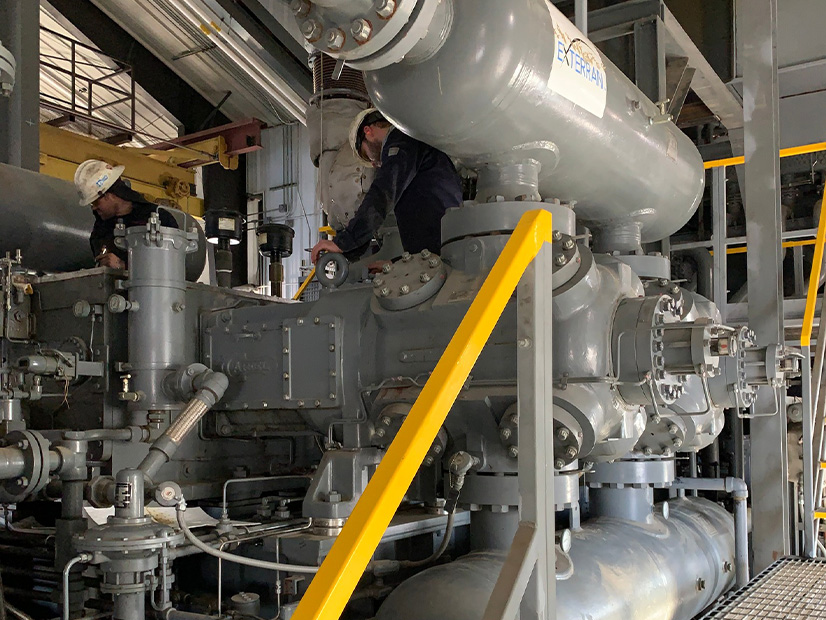A Montana court last week invalidated an air quality permit and ordered construction to halt on NorthWestern Energy’s (NASDAQ:NWE) planned methane gas plant, citing insufficient analysis of greenhouse gas emissions.
The 13th Judicial District Court in Yellowstone County ruled April 6 that the Montana Department of Environmental Quality’s (DEQ) 2021 issuance of a permit for NorthWestern’s 175-MW Laurel Generating Plant did not fully evaluate the facility’s environmental consequences and was not within the law (DV 21-1307).
The Montana Environmental Information Center (MEIC) and Sierra Club challenged the DEQ permit, saying the 20-page environment assessment didn’t adequately consider greenhouse gas emissions and climate repercussions. They said the permit ignored the plant’s sulfur dioxide emissions, and it did not analyze water-contamination risks of drilling under the Yellowstone River to build a pipeline to Laurel.
The court said DEQ’s exclusion of the pipeline’s environmental impact was appropriate because the State Land Board has that purview. However, it agreed that the agency violated the Montana Environmental Policy Act by issuing the permit without considering the full environmental harm caused by the plant’s construction and operation.
The court found that DEQ “reasonably examined” the plant’s impact on regional sulfur dioxide levels, but it did not conduct a substantive analysis of the plant’s greenhouse gas emissions. The agency argued that because it cannot regulate carbon emissions, it should not have to evaluate those pollutants.
District Court Judge Michael Moses said that counter to DEQ’s claims, the agency was not absolved from analyzing emissions.
“DEQ misinterprets the statute. They must take a hard look at the greenhouse gas effects of this project as it relates to impacts within the Montana borders. They did not take any sort of look at the impacts,” Moses wrote.
The court determined that DEQ must take another “hard look” at the project.
“This project is one of NorthWestern Energy’s largest projects in Montana. It is up wind of the largest city in Montana. It will dump nearly 770,000 tons of greenhouse gases per year into the air. The pristine Yellowstone River is adjacent to the project,” Moses said. “This project will have a life of more than 30 years. That amounts to in excess of 23 million tons of greenhouse gases emissions directly impacting the largest city in Montana that is less than 15 miles down wind. To most Montanans who clearly understand their fundamental constitutional right to a clean and healthful environment, this is a significant project.”
NorthWestern Energy did not respond to RTO Insider’s request for comment concerning the next steps it will take.
The MEIC and Sierra Club worked with the Thiel Road Coalition, a local group of landowners. The groups celebrated the ruling.
“My business, my family and my home will be directly impacted by NorthWestern’s proposed project. We have raised our concerns every step of the way, and state and local governments keep ignoring us,” Thiel Road Coalition’s Kasey Felder said in a press release circulated by MEIC. “We were worried we would get a ‘Braveheart’ ending to this story. It’s a relief to know the scales of justice are still in balance, and the little guy can be heard.”
“For too long it’s felt like a David versus Goliath battle. I’m so tired of the government and NorthWestern ignoring us. We live here. We have raised concerns time and time again about the impacts of this plant,” Carah Ronan, another coalition member, said. “When the government breaks the law and refuses to listen to the folks who live in the area, we have nowhere else to turn but the courts. We are thankful that the courts are willing to side with average Montanans who are just concerned about their health, property, businesses and future generations.”




